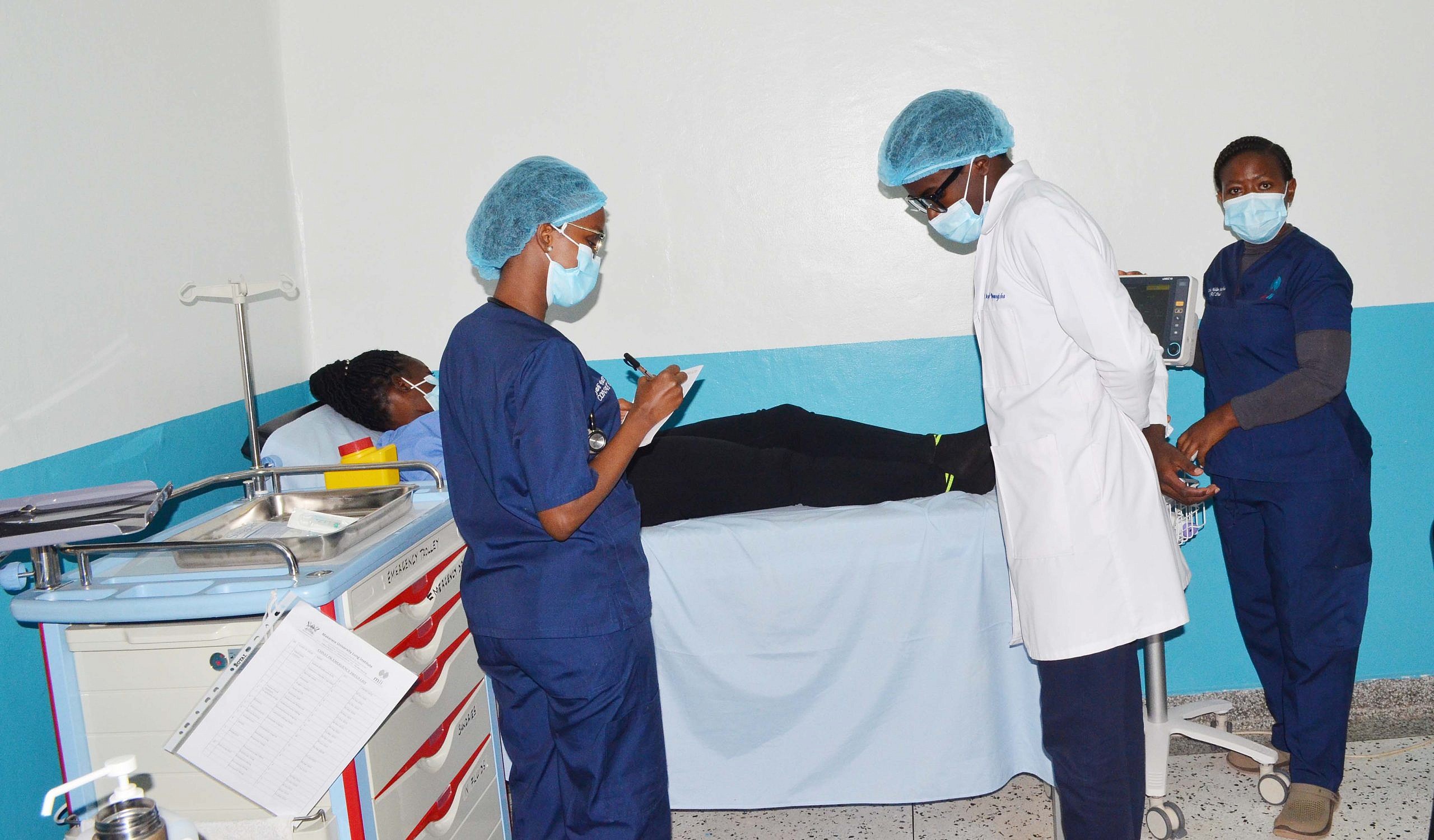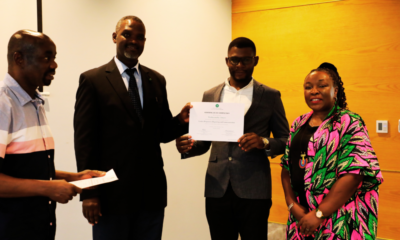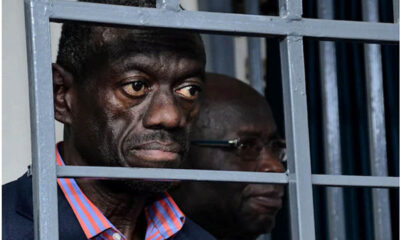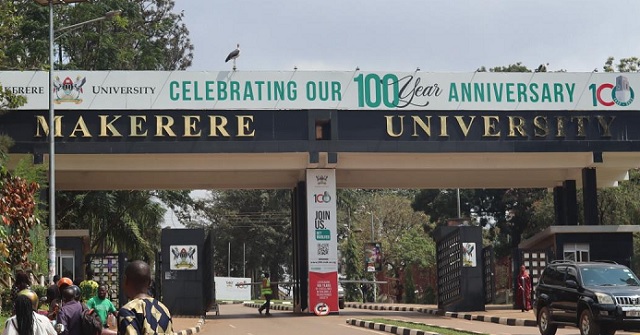
Makerere University’ Lung Institute to do clinical trials on herbal medicine
Makerere University Lung Institute (MLI), renowned for its work in managing respiratory diseases in sub-Saharan Africa, has spearheaded the Clinical Trial of Natural Therapeutics (CONAT) program.This ambitious endeavor, funded by the Ugandan government through the Science Technology and Innovation – Office of the President Secretariat (STI-OP), aims to uncover the healing powers of natural and herbal remedies, advancing them through human clinical trials to achieve notification and licensing of safe and efficacious products.Clinical trials are essential for testing new treatments, including drugs and medical devices.In Uganda, a pioneering effort is underway to revolutionize healthcare through the CONAT program, which is not just about finding cures but also unlocking nature’s potential.According to Dr. Winters Muttamba, the CONAT Program Manager, they have successfully recruited their 510th trial participant in an ongoing trial dubbed Acute Respiratory Tract Infections (ARVI) with promising results.This ARVI trial is assessing the safety, pharmacokinetics, and preliminary efficacy of Tazcov and Vidicine for treating acute respiratory viral infections, including SARS-CoV-2, Influenza A and B, and RSV.It aims to evaluate Ugandan-formulated natural medicines for managing ARVIs, which are prevalent in the Ugandan population.While various local natural medicines exist, none have undergone formal scientific trials, causing the country to miss out on potentially effective treatments and their economic benefits.“The journey does not end with the CONAT program; we are extending our efforts to tuberculosis research, enhancing treatment outcomes, and reducing the disease burden,” says Dr. Joanita Nalunjogi, the Clinical Trials Head at Makerere University Lung Institute.Dr. Nalunjogi says that recent breakthroughs from the evaluation of a standardized treatment regimen for patients with Multi-drug Resistant Tuberculosis (STREAM) trial may redefine the management of drug-resistant TB.This groundbreaking research confirmed that a shorter (6 or 9 months), safer regimen for drug-resistant TB is as effective as the traditional 12-month approach, offering a better outlook for patients and their caregivers.All these breakthroughs are hinged on collaborative partnerships.The STREAM trial, a first of its kind in MDR-TB treatment evaluation, involved multiple research sites in Uganda, South Africa, India, Ethiopia, Moldova, and Georgia.Together, they aimed to identify a shorter, safer regimen for patients with MDR-TB and an all-oral regimen. Uganda contributed 56 out of 588 patients enrolled in the trial.Uniquely, the cost to Ugandan trial participants of the new 9-month treatment with pills was higher, as they spent more on additional food to supplement their diet during treatment, with no clear explanation as to why.https://www.ugbulletin.co.ug/makerere-universitys-lung-institute-to-do-clinical-trials-on-herbal-medicine/
News
Ugandan Citizen Abducted, Held in Secret Detention for Three Months, Sparks Outrage and Calls for Justice

A disturbing new case of unlawful detention has surfaced, highlighting the ongoing human rights crisis in Uganda. A Ugandan citizen was reportedly abducted and held in a secret facility, known as a “safe house,” for three months, only to be released without charge or explanation. This incident, reported by NTV Uganda, has sparked widespread condemnation and renewed calls for accountability regarding human rights abuses in the country.
While the details surrounding the abduction remain unclear, reports indicate that the individual was taken without due process and held incommunicado—an action that has long been condemned by human rights organizations. The victim’s release, with no charges filed and no clear justification, has angered activists and citizens, who view this as yet another case of egregious abuse of power by the state.
“This is a recurring pattern,” said one human rights activist. “Abductions, secret detentions, and unexplained releases have become all too common in Uganda. These acts violate fundamental human rights and erode public trust in the justice system.”
The use of “safe houses,” unregistered detention facilities reportedly operated by security forces, has been a focal point in numerous allegations of torture and illegal imprisonment. Despite repeated calls from both local and international organizations for their closure and accountability for those involved, little action has been taken to address these violations.
This case underscores the urgent need for reform within Uganda’s security apparatus and greater accountability for human rights abuses. Observers hope that drawing attention to these injustices will spur concrete action to bring those responsible to justice and ensure the protection of basic human rights.
As frustration mounts, calls for both domestic and international pressure to hold the government accountable for such crimes grow louder. “One day, there must be accountability for all these crimes against our people,” stated one social media user, reflecting the sentiments of many Ugandans.
News
NUP Gathering Disrupted: Kyagulanyi Alleges Security Force Harassment and Arrests

National Unity Platform (NUP) President Robert Kyagulanyi has accused Ugandan security forces of using excessive force to disrupt a planned NUP gathering. The allegations were detailed in a statement shared on Twitter, following an event held to honor children of NUP supporters who were killed, disappeared, or detained for their political beliefs.
According to Kyagulanyi, security personnel, under the command of an officer identified as Asiimwe, carried out a preemptive operation early in the morning upon learning of the NUP’s plans. The forces allegedly stormed the premises, arrested workers, and deployed tear gas to disperse those present.
“The criminals under the command of one Asiimwe deployed early morning, arrested our workers, and threw tear gas into our premises. They’ve cordoned off the premises and blocked all people from accessing the place,” Kyagulanyi wrote.
Among those reportedly arrested were Saava Peter, Mudenya Samson, and Turyasingura Samson. Kyagulanyi claimed the detained workers were subjected to beatings and interrogated about their political affiliations, with security operatives labeling them as terrorists.
“These JATT operatives asked the workers who they support politically, branding them terrorists and criminals—their only crime being that they work with us. You can imagine the indignity!” Kyagulanyi lamented.
This incident adds to the growing tension in Uganda’s political climate, where opposition parties frequently accuse the government of stifling dissent. Despite the challenges, Kyagulanyi ended his statement with a message of defiance and optimism, proclaiming, “UGANDA WILL BE FREE.”
NUP Gathering Disrupted: Kyagulanyi Alleges Security Force Harassment and Arrests
News
Sudan Demands Apology from Uganda Over Army Chief Muhoozi Kainerugaba’s Threat to Invade Khartoum

Sudan has demanded an official apology from Uganda over “offensive and dangerous” comments made by the chief of Uganda army staff, who threated to invade Khartoum, the Sudan Tribune has reported.
General Muhoozi Kainerugaba, son of Ugandan President Yoweri Museveni and CDF of the Ugandan army, posted two comments on the X platform on Tuesday in which he threatened “to capture Khartoum” with the support of the US President elect Donald Trump after he takes office. The posts were deleted later.
“The government of Sudan demands and official apology from the Ugandan government for the offensive and dangerous comments of the army commander,” Sudan’s foreign ministry said in a statement that the Sudan Tribune said it has seen.
Sudan Demands Apology from Uganda Over Army Chief Muhoozi Kainerugaba’s Threat to Invade Khartoum








